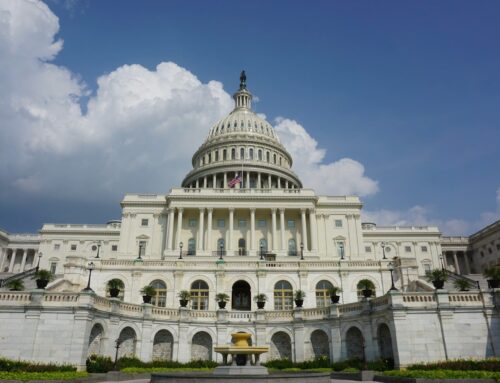Read our Tax Extenders Primer – Tax Extenders: Impact and Evolution in U.S. Fiscal Policy
Update- January 31, 2024
Last night, the House of Representatives voted to approve “Tax Relief for American Families and Workers Act,” H.R. 7024, with a strong bipartisan majority of 357 to 70 votes. Despite the House’s bipartisan approval, the bill faces challenges in the Senate. Key Republican senators have expressed skepticism about the bill. Sen. Mike Crapo (R-ID), who is leading negotiations for Senate Republicans, has expressed concerns about allowing households to claim a larger child tax credit based on the previous year’s income.
Stay tuned for updates on its status and potential impacts!
January 22, 2024
The House Ways and Means Committee, led by Chair Jason Smith (R-MO) and ranking member Richard Neal (D-MA), has approved a broad, bipartisan tax package known as the “Tax Relief for American Families and Workers Act,” H.R. 7024. The bill is a $78 billion bipartisan package that has received significant support, passing with a vote of 40-3.
The legislation includes provisions for the immediate expensing of research and development costs, full and immediate expensing for machines, equipment, and vehicles, and tax credits to incentivize the building of affordable rental units. It also expands the child tax credit by adjusting it for inflation. If enacted, taxpayers could potentially claim the expanded credits on their 2023 returns.
To offset the cost of these measures, the bill proposes to end a pandemic-era tax credit for businesses with employees impacted by Covid-19 on January 31.
The House could soon vote on the tax package as Congress continues to struggle to pass spending bills and supplemental funding packages. Congress passed, and President Biden signed into law, another short-term continuing resolution (CR) on January 18, 2024. This resolution extends the “laddered” approach from the current CR, with the first set of appropriations bills expiring on Friday, March 1. These include Agriculture, Energy-Water, Military Construction-VA, and Transportation-HUD. The second set of appropriations bills would expire a week later. If Congress does not finalize these spending bills or pass another CR by March 1, a partial shutdown of the federal government would occur.
Meanwhile, President Biden and Congressional leaders are also seeking a path forward for the supplemental spending package for Ukraine and border security. The broader security package includes about $60 billion for Ukraine, mainly used to purchase U.S. weaponry to fight the war and to shore up its own government operations. It also includes some $14 billion for border security and additional funds for other security needs.
Negotiations have been ongoing for months, with Senate negotiators seeking a middle ground on immigration issues to attract a group of moderates from both parties to back the aid package. The last security assistance package to Ukraine was authorized on Dec. 27, 2023, and there is no more U.S. money left for Ukraine until Congress passes the supplemental package.










Get Social